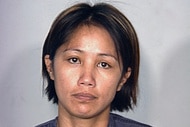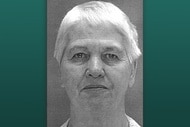Evan Rachel Wood Testifies On Coercive Control At 'Jennifer’s Law' Hearing In Connecticut
The Connecticut bill is nicknamed “Jennifer’s Law” after Jennifer Magnano, who was shot dead by her husband, and Jennifer Farber Dulos, who went missing in 2019 and is presumed murdered.

Evan Rachel Wood appeared before lawmakers for the third time in three years this week to testify to Connecticut state senate panel as it works to define coercive or controlling behavior in relation to its domestic violence laws — specifically for a bill nicknamed “Jennifer’s Law” after murder victim Jennifer Magnano and presumed murder victim Jennifer Farber Dulos.
Wood, 33, told the Connecticut Joint Judiciary Committee in testimony on Wednesday surrounding state senate bill SB 1060 of her own experiences with domestic violence and coercive control in an abusive romantic relationship. The Emmy-nominated actor’s latest testimony comes the month after she named her former partner, the shock-rock musician and actor Marilyn Manson, as her abuser in an Instagram post. Manson, whose legal name is Brian Warner, has flatly denied Wood’s allegations. The two began a relationship when she was a teenager and he was in his 30s; they split in 2010.
“Multiple forms of isolation and control against one person can be deadly,” Wood told lawmakers this week. “I had been successfully trapped, and the sexual and physical abuse became severe. If I had been educated about coercive control, I may have been able to spot the signs.”
As she spoke for potential victims, Wood told the committee that she was unable to detail too much about her past experiences as a criminal probe prevented her from speaking entirely freely.
Warner is the subject of an open investigation by the Los Angeles County Sheriff’s Department’s special victims bureau, which was opened in February, just weeks after Wood and several other women posted allegations online against the 52-year-old rocker.
On Wednesday, State Sen. Alex Kasser asked Wood if the alleged abuse had ever become physical. The “Westworld” star replied that it did and that at times she was drugged.
“He had leverage over me,” she went on to say. “If I wanted to leave, he would threaten to release things or show people, and I didn’t think anybody would ever believe me. So, I was afraid of my reputation being destroyed.”
Wood also indicated that she believes that the legal burden of intent should not be on the victim to establish, but rather inferred by the courts. She then went on to describe the coercive control of her abuser.
“The analogy I like to use for coercive control is ‘The lobster is slowly boiling in the pot.’ You don’t realize that you’re being boiled until it’s too late,” she told lawmakers.
Wood previously testified in 2018 before a House Judiciary subcommittee on her experiences as a rape and domestic violence survivor in an effort to get the Sexual Assault Survivors’ Bill of Rights Act passed nationwide. That same year, she testified before the California Senate in support of the Phoenix Act, which she helped create after learning that the statute of limitations for the crimes she alleged had been committed against her had passed. The act was passed into law in 2019.
SB 1060, or Jennifer’s Law, concerns court proceedings involving allegations of coercive control occurring between family or household members. The act has come before state lawmakers two years after the disappearance of Jennifer Dulos and 14 years after the murder of Jennifer Magnano.
Dulos vanished in May 2019 amid a contentious divorce and child custody battle with her estranged husband, Fotis Dulos. The former couple had five children. While her body has not been found, she’s presumed dead. Police have said they believe Fotis killed her; he died by suicide in January 2020 after being indicted on murder charges.
Jennifer Magnano, 42, was shot to death by her estranged husband at her house in Terryville, Connecticut in 2007 as she and her children were gathering items while trying to flee. She was ambushed by Scott Magnano, who then died by suicide, as her three children watched, according to the group Connecticut Protective Moms, which said her “murder received no media outcry.”
“Looking at Scott's coercively controlling behavior pre-separation and his stalking behavior post-separation, and the lengths he would go to get Jennifer back within his control using both the criminal justice system, and the family court system to track her down and entrap her shows yet again the close correlation between coercive control and homicide,” the group says on its website.




























